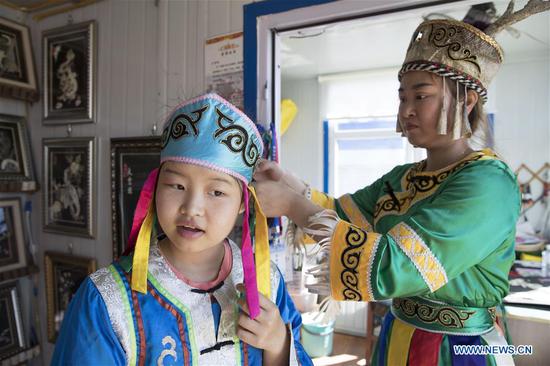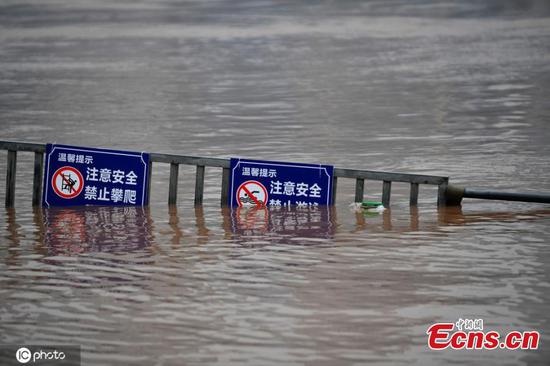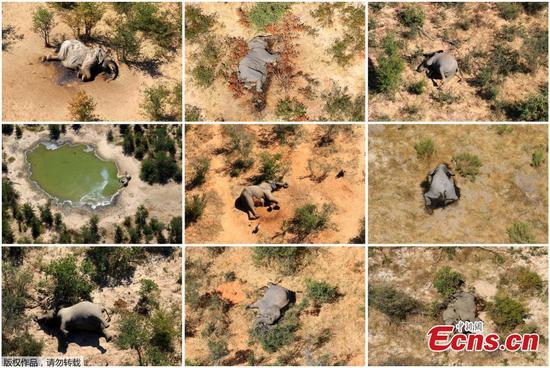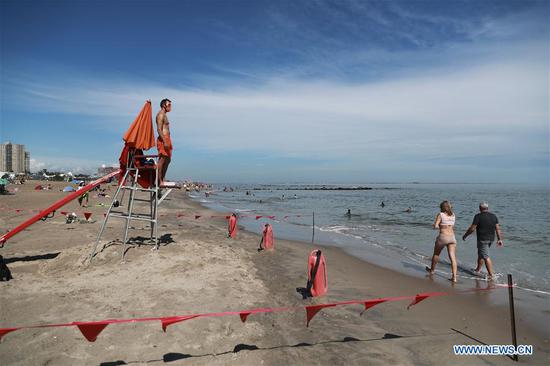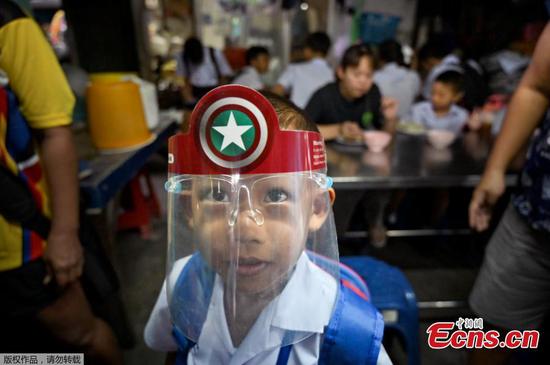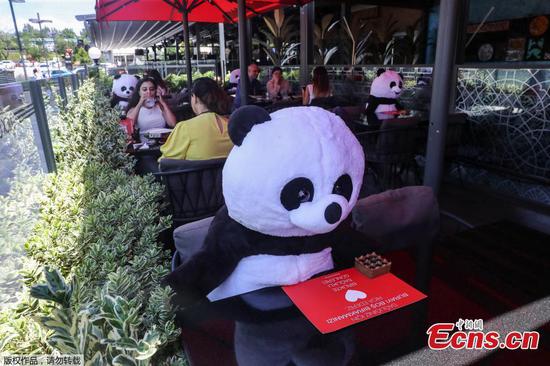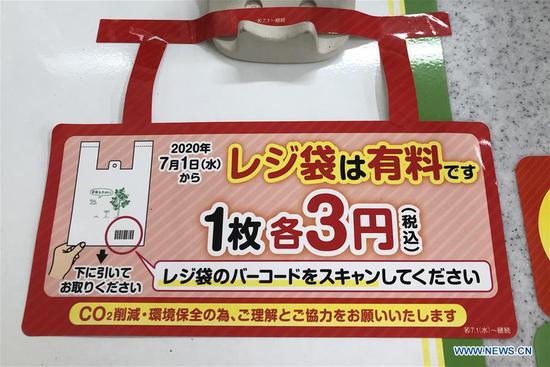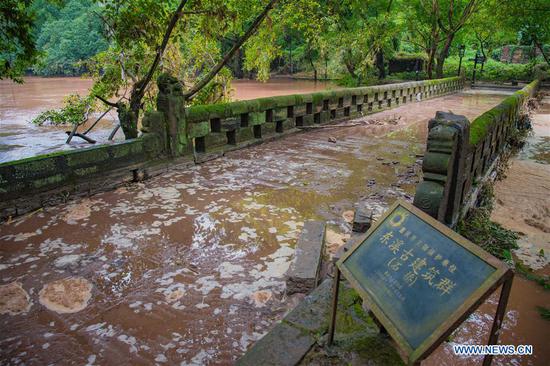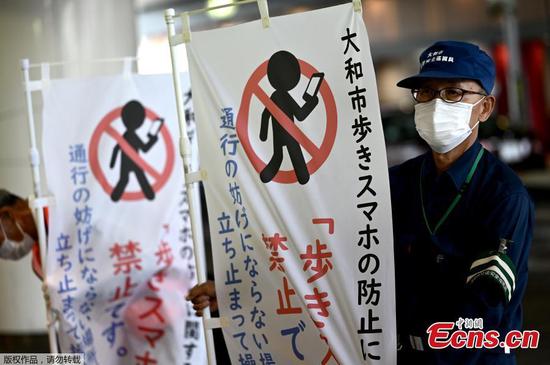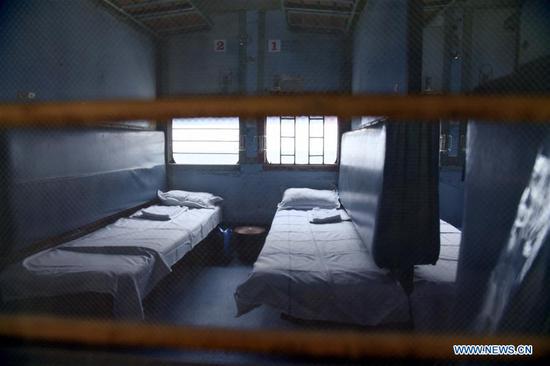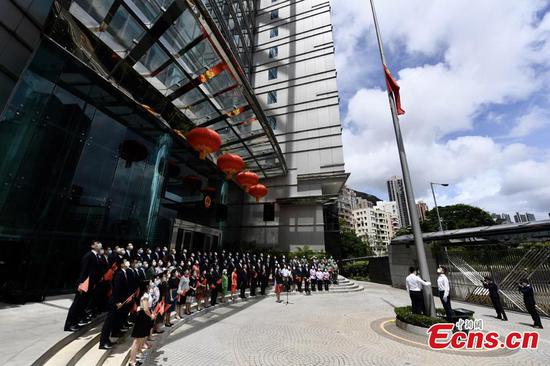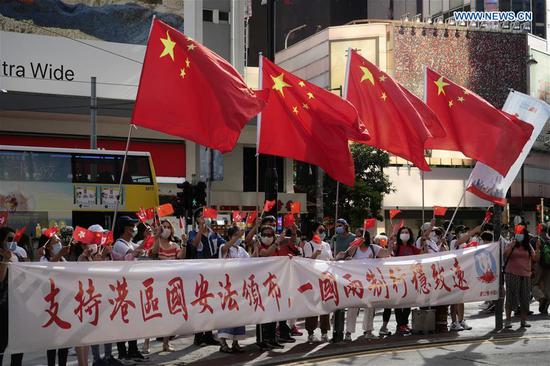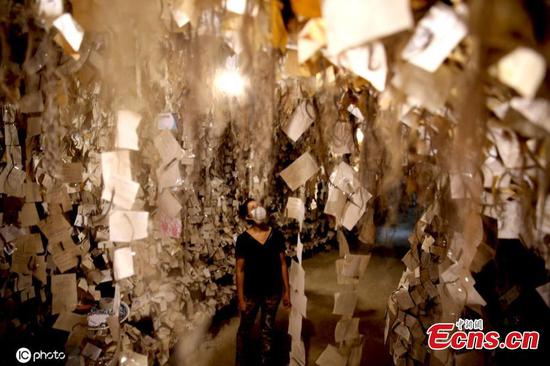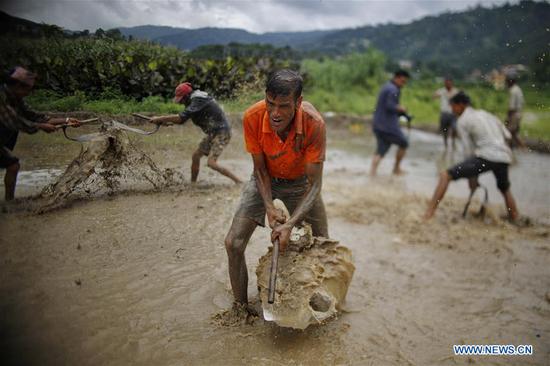31. False: In media reports or social media posts about "missing persons", overseas Uyghurs tell stories about their "families" and "friends" in Xinjiang who have "lost contact" or "gone missing".
True:
◆Xinjiang has never curtailed the freedom of travel of Uyghur people or people of any other ethnic groups. Nor is there any restriction on communication with relatives abroad.
◆It has been verified by the relevant authorities that the so-called "missing persons" mentioned by overseas East Turkistan elements are either living a normal life or simply non-existent.
In an ABC News (Australia) report, Azmat Omar, a Chinese citizen living in Australia, claimed that he had lost contact with his family members in Xinjiang, including his father, stepmother, three brothers, two sisters and over 20 nephews. It later became clear that all his family members in China are living normal lives and enjoy full personal freedoms.
During a UN Human Rights Council session in February 2020, the World Uyghur Congress put up photos of the so-called "Uyghurs persecuted by the Chinese government" in the square with the Broken Chair in front of the Palace of Nations in Geneva. The photos have proved to be fake. Separatist groups got hold of the pictures and personal information of Uyghur officials and residents living normal lives in Xinjiang and misrepresented them to spread rumors.
32. False: China uses denial of passport renewal as a weapon to force overseas Uyghurs to return to China, where they face extrajudicial detention.
True:
◆In China, a country governed by the rule of law, the citizens' personal freedom and right to leave and enter the country are protected by law. Chinese diplomatic missions abroad protect the lawful rights and interests of overseas Chinese, including ethnic minorities from Xinjiang, in accordance with laws and regulations including the Exit and Entry Administration Law of the People's Republic of China and the Passport Law of the People's Republic of China. Anyone who holds the Chinese nationality, recognizes oneself as a Chinese national, and has not violated Chinese laws and regulations can apply to the Chinese embassy or consulate in the place of residence for passport renewal or re-issuance.
◆Xinjiang follows a fact- and law-based approach in managing exit and entry affairs and cracking down on crimes of violence and terrorism and activities of religious extremism. Most applications for passport renewal or re-issuance from Xinjiang natives have been received and approved by Chinese embassies or consulates. The very few who have their applications rejected are suspected of involvement in terrorist activities in violation of Chinese laws and regulations.
33. False: The research paper titled The Karakax List:Dissecting the Anatomy of Beijing's Internment Drive in Xinjiang
True:
◆The so-called research paper was produced by Adrian Zenz, a key figure in the so-called Xinjiang's Internment Camps Research Group set up and controlled by US intelligence agencies. The paper is based on a name list of "students sent to re-education who are family members of those who went abroad and have not returned." The list itself was cooked up by ETIM members from inside and outside China.
◆The majority of the 311 people on the list live in Bostan Street in Moyu (Karakax) County. They live and work just like most other people do, and have never received vocational education and training. Only a very small number of those on the list have been sent to vocational education and training in accordance with the law for being influenced by religious extremism and committing minor crimes. Only 19 out of the 311 people have relatives abroad, but none of them have received the vocational education and training.
34. False: 30 relatives of Rebiya Kadeer have been detained without trial.
True:
◆No one from Rebiya Kadeer's family has been implicated. All her relatives live and enjoy freedom in Xinjiang. They want her to stop spreading lies and disturbing their peace.
35. False: Family members of Furqat Jawdat, Arapat Arkin, Zumrat Dawut and other so-called "activists" have been "harassed, imprisoned or arbitrarily detained."
True:
◆Both Furqat Jawdat and Arapat Arkin are members of the World Uyghur Congress, an organization notorious for its violent, terrorist and separatist agenda. They make a living by fabricating stories and splitting their motherland. Their relatives, who are leading a normal life in Xinjiang, feel ashamed of having people like them in the family.
◆Furqat Jawdat's mother is living a normal life in Xinjiang and has regular contact with him.
◆Arapat Arkin's father was sentenced for taking part in violent and terrorist activities, but his mother and younger brother and sister are all living a normal life. None of them have been taken into custody. His mother has repeatedly urged him not to follow his father's path, "Your father did harm to our society. He is being punished for his wrongdoing. He is very sorry for what he has done. So please stop telling lies and leave the World Uyghur Congress before it's too late."
◆Regarding the claim that "Dawut's elderly father, who had been detained and interrogated multiple times by the local authorities in Xinjiang, recently passed away under unknown circumstances", here is what really happened: Dawut's father had been living with his children all these years, without ever being "interrogated" or "detained". Suffering from a serious heart condition for many years, the octogenarian passed away in hospital in October 2019 after all medical treatment had failed. During his last days in hospital, the old man was attended by Dawut's older brothers and other relatives who stayed by his bedside.
36. False: Mutallip Nurmamat died nine days after his release from an internment camp. Prominent Uyghur writer Nurmamat Tohti died in an internment camp. Sayragul Sawutbay saw people tortured in a detention camp before fleeing China. Uyghur musician and poet Abdurehim Heyit was sentenced to eight years in prison and died in the second year of imprisonment.
True:
◆Mutallip Nurmamat never studied in a vocational education and training center. In December 2018, he died from acute alcohol poisoning, alcoholic encephalopathy, respiratory failure and acute upper gastrointestinal hemorrhage triggered by alcohol abuse.
◆Nurmamat Tohti never studied in a vocational education and training center. He had had coronary artery disease for over 20 years and spent most of his time receiving treatment in hospital or recuperating at home. On 31 May 2019, after suffering an acute myocardial infarction at home, he was taken to hospital but passed away despite emergency rescue efforts.
◆Sayragul Sawutbay is suspected of fraud. To flee justice, she crossed the border illegally into Kazakhstan. She never stayed in any vocational education and training center in China, and was never detained before her illegal escape. Her words about seeing people tortured cannot be true.
◆Abdurehim Heyit, arrested on suspicion of endangering national security, is in good health. On 10 February 2019, Heyit said in a published video, "I am under investigation for suspected violations of law. I am in very good health, and I have never been abused."
37. False: A comic book titled What has happened to me: A testimony of a Uyghur woman recounts the experiences of Mihrigul Tursun, a Uyghur woman who allegedly escaped a vocational education and training center. She claimed to have seen the death of nine women while in custody, and that her younger brother was abused to death in a vocational education and training center.
True:
◆Mihrigul Tursun, an ethnic Uyghur, used to live in Qiemo County of Bayingol Mongolian Autonomous Prefecture in Xinjiang. She was detained for 20 days in April 2017 by the Public Security Bureau of Qiemo County over suspicion of inciting national enmity and discrimination. In 2018, she voluntarily relinquished her Chinese citizenship and left China with an Egyptian passport. She had never been imprisoned in China, nor had she studied in any vocational education and training center.
◆Akbar Tursun, her younger brother, said publicly, "My sister Mihrigul is full of lies. She not only said I am dead, but also lied about seeing others die."












